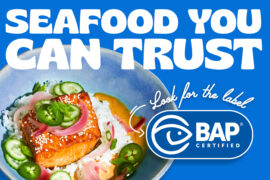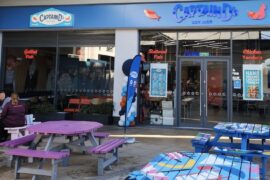Thai Union Group PLC (TU) held a special event for suppliers in Bangkok on March 4 to inform them about its strict Code of Conduct to ensure understanding and compliance. The company is a major exporter of frozen shrimp, canned tuna and other value added seafood products. Approximately 600 suppliers attended.
The presentation included a full explanation of the 12 fundamental principles of the Business Ethics and Labor Code of Conduct. Thai Union management highlighted the importance of compliance and made it clear that suppliers who did not work to meet the standards would be unable to continue doing business with the company. Afterwards suppliers’ were invited to sign the Code of Conduct, signaling their commitment.
“I am delighted that so many of our partners signed a pledge to comply. It is a positive sign that we are all able to move forward together in order to improve how the Thai seafood industry operates,” said President and CEO Thiraphong Chansiri. “Our vision is to be the world’s most trusted seafood leader, and as a company we understand this can only be achieved when business is conducted sustainably and responsibly. We want to ensure that our business partners in our supply chain understand how important these issues are to Thai Union and are fully aware of how best to comply.”
Dr. Darian McBain, the company’s director of sustainable development, added: “Thai Union’s policy is clear. We do not tolerate human rights violations and we will continue to work to make sure that the workers’ in our supply chain can enjoy free and fair employment that respects their rights and dignity. Events such as this, which help our suppliers understand they must comply with our Code of Conduct, is one way we are working to achieve our goals. The Code of Conduct is an important part of our wider sustainability strategy, ‘Sea Change,’ which aims to deliver real and lasting changes to the way both we and the Thai and global fishing industries operate.”
In the last 18 months, Thai Union has terminated relationships with 16 suppliers due to forced labor or human trafficking violations. The company has also reduced the number of vessels it conducts business with from over 2,000 to just 400 to drive better visibility and control of labor conditions.





